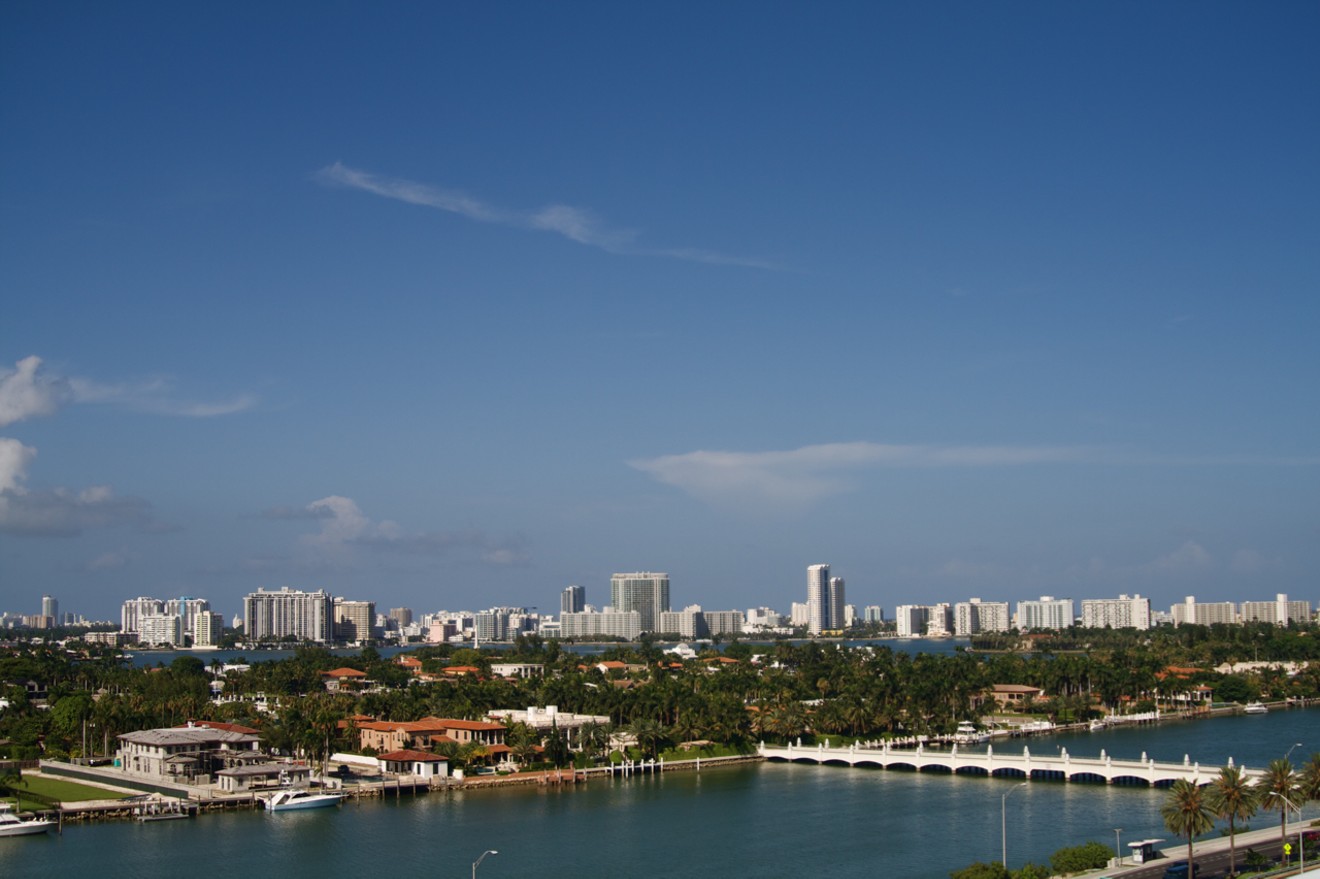But according to a new lawsuit, not all property owners are being treated equally. A complaint from real-estate agent Greg Mirmelli accuses the city of having a confidential agreement with German multimillionaire Christian Jagodzinski, who owns the luxury vacation rental company Villazzo. Mirmelli's attorney, Alexander Orlofsky, says the city has refused to comply with public records requests, which has only sharpened his questions about why Villazo is allowed to rent out villas on Palm Island, where short-term rentals are banned under city rules.
"Why are they letting him rent out these properties on Palm Island?" Orlofsky says. "If he can do it, why can't other residents?"
Both Villazzo and the city declined to comment for this story.
Villazzo has rented out vacation homes in Miami Beach since 2002. The company's website advertises luxury villas and mansions along Biscayne Bay with amenities such as home theaters, marble floors, and infinity pools.
Court records show Villazzo filed two suits against Miami Beach, in 2007 and 2009, challenging the city's ban on short-term rentals and contesting fines issued against the company. In 2014, Villazzo's attorney asked the city to sign a "standstill agreement" to waive code enforcement fines against the company in exchange for Villazzo dropping the suit.
According to a document dated January 15, 2015, the city's attorney declined to sign the agreement for "political" reasons but essentially made a gentlemen's agreement not to lodge new violations against the company as long as no formal complaints were made about the properties. The document doesn't specify how long that agreement was meant to last.
But city records show Villazzo hasn't been fined for violating the short-term rental ban even though the company's website clearly advertises such rentals, including a mansion the firm owns at 10 Palm Ave. — a seven-bedroom waterfront villa valued at $11.6 million.
The company's website likens its properties to a "private hotel" that can be rented out by the night or week. But city maps clearly show that no homes on Palm Island can be legally rented out for less than six months at a time.
Mirmelli says that fact makes it clear
Asked about the allegations, city spokesperson Melissa Berthier would not directly answer if Villazo was legally allowed to rent out its Palm Island property by the night.
"At this point in time, the City of Miami Beach is unable to provide a response based upon the allegations set forth in the lawsuit," she told New Times in an email.
The rest of Mirmelli's complaint challenges the city's short-term rental ordinance as a whole. Mirmelli, who owns a waterfront property on Sunset Islands, claims to have lost $7.65 million in potential rental income since 2010. Records show he was fined $25,000 for violating the short-term rental ban in April.
"We don't want to violate the law, but if the law isn't being enforced against certain people, the law isn't fair," Orlofsky says.
As of this week, the city had not yet been formally served with his lawsuit. In an email to New Times, Miami Beach Chief Deputy City Attorney Aleksandr Boksner called the new allegations "devoid of any legal merit."
"The alleged lawsuit is a futile endeavor, which was inappropriately initiated, in order to excuse the unlawful commercial conduct of the Plaintiff," Boksner wrote.












